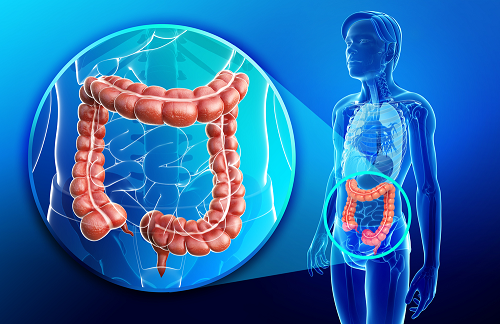How to Prevent Colon Cancer – know the signs & symptoms
Signs of colon cancer include:
- Prolonged constipation or diarrhea
- Presence of blood in the stool
- Unexplained weight loss
- Anemia – signs of iron deficiency (found in routine blood tests)
As symptoms continue to develop, some may experience bloating, abdominal pain, or nausea. Feeling of acute abdominal pain may indicate the development of Ileus; obstruction of the bowels, a condition that requires immediate clinical treatment and is often caused by colon cancer.
As previously mentioned, timely diagnosis significantly improves prognosis and ability to reach full recovery. Therefore, upon presentation of primary symptoms associated with suspected malignancy, one should seek immediate medical assistance. Modern equipment is utilized to diagnose colon cancer early and to evaluate damage to the colon. Diagnosis may involve fecal blood tests, high-sensitivity immunochemical tests, and screening to detect intestinal bleeding.
Colon Cancer Treatment
Fortunately, several treatment methods have been developed to treat colon cancer using techniques that are minimally invasive and work to maintain the integrity and structure of healthy tissue of the intestine and help patients efficiently reach full recovery. Current techniques often involve advanced surgical procedures that remove damaged sections of the intestine and rejoin healthy tissue, as well forms of targeted drug therapy (chemotherapy) and radiation therapy. Treatment for colon cancer may also be effective when two or more methods are combined, in order to reach optimum results.
Source: HealthNews Nigeria

 First of all, colon cancer is among the most common cancer types worldwide.Colon cancer is best characterized as the presence and development of cancer cells in the tissue of the intestines, namely the colon and the rectum; both involved in the lower digestive system. Malignant cancer cells develop in bunches known as polyps, which risks spreading cancer cells to distant parts of the body. In order to prevent malignancy, medical professionals emphasize the importance and benefit of early diagnosis and beginning treatment as soon as possible to sustain the best possible conditions for full recovery and return to normal life.
First of all, colon cancer is among the most common cancer types worldwide.Colon cancer is best characterized as the presence and development of cancer cells in the tissue of the intestines, namely the colon and the rectum; both involved in the lower digestive system. Malignant cancer cells develop in bunches known as polyps, which risks spreading cancer cells to distant parts of the body. In order to prevent malignancy, medical professionals emphasize the importance and benefit of early diagnosis and beginning treatment as soon as possible to sustain the best possible conditions for full recovery and return to normal life.





